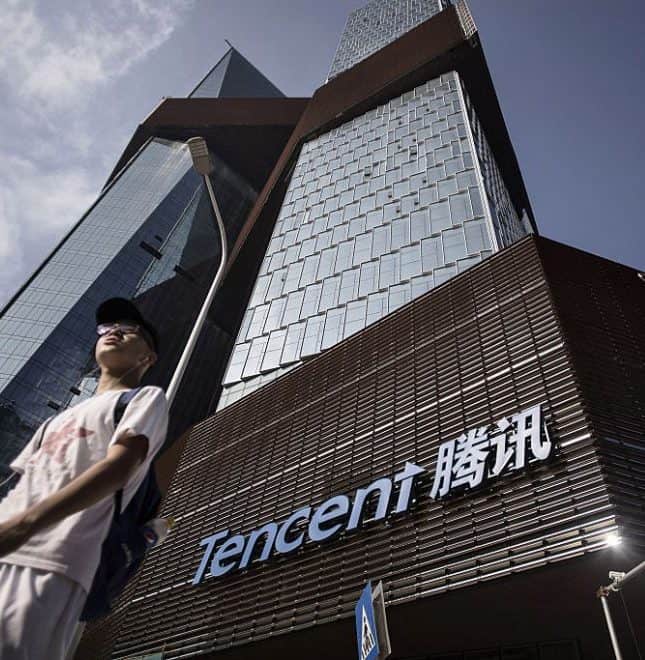Find out the week’s top mobile stories from around the world.
This week.. PayPal agrees $2.2bn deal for iZettle, LocationSmart location data controversy, YouTube Music and Premium details, Australia looking into claim Google harvests data and much more…

PayPal agrees $2.2bn deal for Swedish payments firm iZettle
Mobile Marketing Magazine
PayPal has agreed to acquire iZettle, a Swedish mobile payments firm which enables small businesses to process card payments, for $2.2bn (£1.6bn).
The acquisition – PayPal’s largest ever – will expand PayPal’s in-store presence, enabling it to reach small businesses around the world through its merchant services offering. iZettle will become the European centre of excellence for PayPal’s in-store product and services offerings.
“Small businesses are the engine of the global economy and we are continuing to expand our platform to help them compete and win online, in-store and via mobile,” said Dan Schulman, president and CEO at PayPal. “iZettle and PayPal are a strategic fit, with a shared mission, values and culture – and complementary product offerings and geographies.
Read more…
LocationSmart didn’t just sell mobile phone locations, it leaked them
Tech Crunch
What’s worse than companies selling the real-time locations of cell phones wholesale? Failing to take security precautions that prevent people from abusing the service. LocationSmart did both, as numerous sources indicated this week.
The company is adjacent to a hack of Securus, a company in the lucrative business of prison inmate communication; LocationSmart was the partner that allowed the former to provide mobile device locations in real time to law enforcement and others. There are perfectly good reasons and methods for establishing customer location, but this isn’t one of them.
Police and FBI and the like are supposed to go directly to carriers for this kind of information. But paperwork is such a hassle! If carriers let LocationSmart, a separate company, access that data, and LocationSmart sells it to someone else (Securus), and that someone else sells it to law enforcement, much less paperwork required!
Read more…
YouTube Music and Premium: Everything you need to know about Google’s new streaming subscriptions
Venture Beat
YouTube’s long-rumored subscription music-streaming service is now official. Last night, the company announced its all-new YouTube Music service, which includes original audio songs and albums provided by artists and labels, artist radio channels, remixes, covers, personalized playlists, and — of course — videos.
It’s worth noting here that the Google-owned video behemoth has offered a service called YouTube Music in a handful of markets for a few years already, but that is a slight different proposition. The existing YouTube Music, which is only available in the U.S., Australia, New Zealand, Mexico, and South Korea, is a free ad-supported app that offers access to millions of audio- and video-based music recordings. You can also make it ad-free via a $10/month YouTube Red subscription and unlock a bunch of features, such as offline access and the ability to listen to music in the background when the YouTube app is minimized.
Read more…
Australia looking into claim Google harvests data while consumers pay
Reuters
Google is under investigation in Australia following claims that it collects data from millions of Android smartphone users, who unwittingly pay their telecom service providers for gigabytes consumed by the activity, regulators said on Tuesday.
Responding to the latest privacy concerns surrounding Google, a spokesman for the U.S. based search engine operator said the company has users’ permission to collect data.
“Any charges for transmission of data over a cellular connection, including any location-related data, would be governed by a user’s mobile carrier plan,” Google said in a statement. “The types and quantity of such data that a user’s device transmits would depend on the products or services they use, and in some cases a user’s settings,” it added. The Australian investigations are set to focus on allegations made by Oracle Corp in a report provided as part of an Australian review into the impact that Google, owned by Alphabet Inc, and Facebook have on the advertising market.
Read more…
Mobile banking uptake sees new spike in Brazil
ZD Net
Brazil has seen a significant spike in the transactions carried out via smartphones, according to a recent report.
There was an increase of 30 percent in mobile banking in 2017 with 25,6 billion transactions carried out via that channel out of the total of 71,8 billion transactions for the year, according to a study by the Brazilian Banking Federation (FEBRABAN).
Of the m-banking total, there was an increase in the operations involving money transactions, with a 70 percent jump on the prior year with 1,7 billion transactions.
As Brazilian customers continue to adhere to mobile banking, the use of cash as well as physical branches has also been decreasing. According to FEBRABAN, cash withdrawals at ATMs dropped by 4 percent and the number of bank branches decreased by 6.8 percent from 2016 to 2017.
Read more…
Tencent profit jumps 61% to $3.7B as its mobile gaming business surges
Tech Crunch
Warnings that Tencent, Asia’s highest-valued tech company, might suffer a rare poor quarter of business proved unwarranted after the company smashed analyst expectations for its latest earnings thanks to its fast-growing mobile games business.
The company reported a net profit of 23.29 billion CNY ($3.7 billion) on revenue of 73.53 billion yuan ($11.5 billion) — beating a Thomson Reuters estimate of 71.04 billion CNY revenue. Net profit was up 61 percent year-on-year, while revenue increased 48 percent over the same period.
Tencent has historically done well in the games space with the PC its cash cow, but last year its smartphone games business overtook that of PC based on revenue.
Read more…
Rakuten set to launch a wireless mobile network in Japan
Tamebay
apanese marketplace Rakuten is planning a foray into the mobile and wireless market there by launching its own network apparently to be called RMobile.
Rakuten has received the necessary government approvals and licenses to offer mobile services and expand its business into a market dominated by three major carriers. They have the necessary 4G permission now and expect to launch the service at some point in 2019. The idea is to offer a mobile and wireless service that will complement their ecommerce, streaming and fintech services which include online securities trading.
It’s reported that Rakuten is hoping to secure at least 15 million subscribers. For comparison, No. 3 carrier SoftBank has about 39 million customers. The other Japanese mobile phone companies are NTT docomo and au by KDDI. Softbank was formerly Vodafone and before that J-phone. Pundits in various sources suggest that the current market is already crowded and competitive.
Read more…
Virgin Mobile Middle East raises $30 million in pre-IPO financing
Reuters
Virgin Mobile Middle East and Africa (VMMEA), part-owned by British entrepreneur Richard Branson’s Virgin Group, has raised $30 million via Islamic bonds ahead of a proposed initial public offering.
The deal from Dubai-based VMMEA, a mobile virtual network operator with a presence in Saudi Arabia, Oman and South Africa, is a rare addition to a market that is comprised mostly of sukuk originated by sovereigns and financial firms
The transaction also includes a novel convertible feature that allows investors to transfer the sukuk certificates into exchangeable instruments that would mature two years after an IPO.
Alternative investment firm Sancta Capital Group and Franklin Templeton Investments Middle East participated as anchor investors, with Arqaam Capital arranging the deal.
Read more…
Facebook India wants to help relations of mobile brands, users
Khaleej Times
With mobile and Internet penetration on the rise in India, Facebook India is set to prepare companies – beginning with the smartphone industry – hit the right chord with consumers and eliminate the massive revenue loss owing to ‘friction’, a top company executive stressed.
The social media giant said it will help smartphone manufacturers reduce consumer drop-off from their purchase journey (referred to as ‘friction’), thereby creating $3.1 billion worth of potential revenue for smartphone brands by 2022.
“Facebook will work as a catalyst in terms of making companies aware that there is this huge opportunity and will build solutions for them to achieve that. Teams from Facebook will help companies and manufacturers design targeted approach depending on what products they have,” Sandeep Bhushan, Director, Facebook India and South Asia, told IANS.
Read more…
How GDPR Will Impact the AI Industry
PC Magazine
In what can be described as a kind of arms race, tech companies have been amassing large volumes of user data to hone the artificial intelligence algorithms that power their applications and platforms. Thus far, they’ve mostly been able to evade accountability when their practices have pushed them into legally and ethically gray areas.
But that might change on May 25, when the European Union’s General Data Protection Rules (GDPR) come into effect. The GDPR will impose unprecedented restrictions on the collection and handling of user data in the EU region and slap heavy penalties on companies that fail to comply.
That might sound like bad news for companies that use AI algorithms, which have benefitted from lax data-collection regulations (and lengthy, boring, and ambiguous terms of service documents). Some fear that stricter rules will hamper innovation and deployment of artificial intelligence in many applications and domains. Others believe the new directive will create a foundation where AI applications will become more reliable and trustable.














